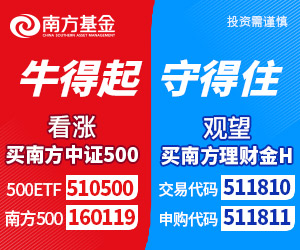For future pandemics, we will build on the achievements which led to developing and scaling up multiple safe and effective vaccines and innovative treatments against COVID-19 in historic record time, collaborating with partners all over the world and executing on access plans.
The innovative biopharmaceutical industry applauds the G7’s commitment to strengthening global pandemic preparedness and response capabilities. Building on this momentum and in recognition of Germany’s leadership role as President of the G7, industry is launching a shared vision for greater equitable access in pandemics, called the Berlin Declaration.
With the declaration, the biopharmaceutical industry proposes to world leaders a framework to further improve the real-time delivery of vaccines, treatments and diagnostics for priority populations in lower-income countries, as determined by health authorities, for future pandemics. We are willing to reserve an allocation of real-time production for these populations, which could further improve equitable access if national health systems, funding mechanisms and absorption capacity are strengthened. Industry calls on the G7, the G20 and other stakeholders to support the declaration.
GENEVA & BERLIN -- (BUSINESS WIRE) --
The biopharmaceutical industry launched today the “Berlin Declaration – biopharmaceutical industry vision for equitable access in pandemics” and presents global leaders with a proposal that could help ensure the supply of pandemic vaccines, treatments and diagnostics are delivered as early as possible in future pandemics to those who need them most. The industry, which developed COVID-19 vaccines and treatments at record speed and in historic quantities, proposes to create a collaborative solution for the even more equitable rollout of vaccines, treatments and diagnostics for future pandemics. It is tabling the declaration and calling for discussions with G7, G20, multilateral organizations and other decision-makers involved in pandemic preparedness to explore how industry’s offer to prioritize and reserve an allocation of real-time production for distribution to priority populations in lower-income countries would contribute towards the holistic and equitable solution the world needs.
A prerequisite for the declaration to succeed is to ensure that health systems in lower income countries are better prepared to absorb and deliver vaccines and treatments, and for high income countries to provide the necessary political and financial support. The declaration underscores the necessity for a strong innovation eco-system, grounded in intellectual property rights, and the removal of trade and regulatory barriers to export. It also emphasizes that without robust pandemic plans to deliver pandemic vaccines, treatments and diagnostics and care to populations in all countries, attempts to improve equity will falter.
The declaration is an acknowledgement that while innovation and manufacturing scaling succeeded in an unprecedented way during COVID-19, efforts to achieve equitable access were not fully realized because of inadequate financing mechanisms upfront and a lack of country readiness which still inhibits the vaccines from getting to every arm that needs it. For future pandemics, it is critical to ensure that all countries have the technical and health infrastructure, human resources and financial capacity as well as political support to successfully vaccinate, test and care for their populations. Furthermore, the success of the proposal requires open borders and no trade restrictions.
The June G7 summit outcomes (link) relating to investing in a better future for health under the overarching theme of “progress towards an equitable world”, and the recently approved the Pandemic Financial Intermediary Fund (link) are encouraging signs that the world has not moved as is feared from panic to neglect when it comes to preparing for future pandemics. Jean-Christophe Tellier, IFPMA President and CEO of UCB, said “we applaud Germany’s leadership of the G7’s pandemic response and trust that our declaration is seen by world leaders as a practical proposal to build greater equitable access into future pandemic response. For this potentially life-saving concept to become reality, we will need to work with G7, and later this year in Bali with G20 to flesh out how to make it work. The reward if successful will help shape a future where everyone has a chance to be better protected from the threat of pandemics from the outset, no matter where they live”.
The industry is already receiving positive reactions to its proposal, and expressions of interest to take the discussion further.
His Excellency Budi Gunadi Sadikin, Minister of Health of Indonesia said: “The biopharmaceutical industry has a critical role to play in preparing for future pandemics. Achieving more equitable access to vaccines and treatments in future pandemics will require close collaboration of governments, private sector and civil society. I welcome the biopharmaceutical industry’s commitment to our shared vision for ‘real-time’ access to priority populations in lower income countries. I look forward to working with political leaders in the G7 and G20 to advance this important initiative.”
José Manuel Barroso, Gavi Chair and COVAX co-Chair shared his insights on hearing about the proposal: “I applaud IFPMA and industry leaders for seizing the initiative. We saw effective innovation and manufacturing scaling up with this pandemic; but we also saw the challenges we had to overcome to get the vaccines to all those who needed them. The industry’s commitment to reserve part of production of vaccines and treatments at real time for vulnerable populations in low-income countries provides an opportunity to work together strategically to forge a new social contract. I hope that political leaders will do their part and engage with industry on how to make this work.”
The body representing industry towards the multilateral institutions throughout the COVID-19 pandemic, IFPMA, will be taking the proposal forwards to the G7 and G20. Thomas Cueni, Director General of IFPMA: “With all stakeholders collaborating and playing their part, we can make sure that the efforts, investments, learnings and losses seen during COVID-19 are not in vain, but rather help shape a future where everyone is better protected from the threat of pandemics. While we have been developing the declaration, I have been very encouraged by the positive responses we have received from government officials as well as partners and civil society. Our proposal is just a first step along the way to what I believe has the potential to be a transformational solution for future pandemics.”
ABOUT
IFPMA (https://www.ifpma.org/) represents the research-based pharmaceutical companies and associations across the globe. The research-based pharmaceutical industry’s 2 million employees discover, develop, and deliver medicines and vaccines that improve the life of patients worldwide. Based in Geneva, IFPMA has official relations with the United Nations and contributes industry expertise to help the global health community find solutions that improve global health.

View source version on businesswire.com: https://www.businesswire.com/news/home/20220617005451/en/
CONTACT:
Abigail Jones: a.jones@ifpma.org, tel: +32475410976
责任编辑: admin
珠海都市网所有文字、图片、视频、音频等资料均来自互联网,不代表本站赞同其观点,本站亦不为其版权负责。相关作品的原创性、文中陈述文字以及内容数据庞杂本站无法一一核实,如果您发现本网站上有侵犯您的合法权益的内容,请联系我们,本网站将立即予以删除!

焦点新闻
热图要闻
热门排行
- PLDA宣布推出Robust Verification Toolset,以提
- Ludovic Blanquet Joins smartTrade as Chief Pro
- Wolters Kluwer FRR Launches OneSumX for Risk M
- 香港旅遊發展局訂立統一衞生防疫指引 向旅客傳遞
- Nanboya香港辦事處遷至佐敦,首個海外採購辦公室
- GSMA Announces Date Changes for its MWC21 Seri
- 罗克韦尔自动化收购网络安全公司
- Standard Digital Group Is Now Accepting Online
- Nanboya香港辦事處遷至佐敦,首個海外採購辦公室
- Standard Digital Group Is Now Accepting Online







